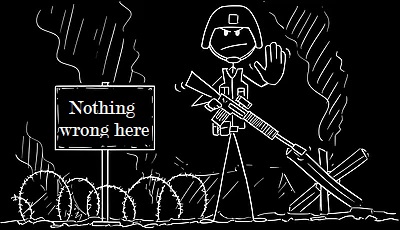Known by Actions
By Anthony Casperson
9-10-22
“This enemy’s called a shaman. You know that he’s going to be healing the other enemies. We have to target him first. Otherwise, he’ll keep undoing our work on the others.”
The man to whom these words belong was setting up the scenario for a board game. Five enemies stood scattered across the play area. Any could be chosen as the first target. None had revealed any piece of their tactics. And the players had never come across any of this type of enemy in previous game sessions.
Why then did the man direct his fellow players to focus on the shaman?
It’s because he knew the typical actions of game characters that are named this role. Other games and experiences have taught him that when there’s a shaman character, they have some sort of magic—most often of the healing variety. A game designer won’t typically name a character a shaman unless they perform these types of actions.
Often, the actions we perform also fall in line with the role we take. What we do indicates the type of person we are. And the type of person we are is shown through the actions we do. (Let me be clear that I’m not talking about anything other than actions and roles. This is not a statement about inherent qualities such as biological gender or the amount of melanin in our skin.)
The man playing the story figured that the tendency of shamans in games was to heal, thus he adjusted accordingly with that understanding. And was proven to be correct as the session unfolded.
A couple of days after witnessing these events, I was researching for the second sermon in the upcoming series for this website. It’ll be a look at the book of Micah. And in chapter two of that book, these words appear, “‘Do not preach’—thus they preach—‘one should not preach of such things; disgrace will not overtake us’” (v. 6, ESV).
The verses following this one shows that God is speaking against false prophets. Those who claim to speak for God, but have not been sent by him. They proclaim that their words are truly from God, yet what they speak stands in stark contrast to the truth that the prophets who actually were sent by God preach.
And these false prophets tell the true prophets to stop preaching about the coming judgement of God. It’s like they’re saying, “Don’t talk about judgement. That’s a disgraceful thing to talk about with regard to God. Besides, we’re safe and secure in what we’re doing because God loves us.”
So, according to the words of God through his prophet Micah, a false prophet is someone who not only refuses to preach about the judgement of God—when it’s coming—but also someone who tells others to not preach about this aspect of God’s justice as well.
If this were the only place in the bible where such a definition of false prophets existed, then it could be handwaved as merely something these false prophets did. Rather than “false prophet” being a named role for those who perform the action of speaking only about the good things from God without the judgement that he promises.
However, Micah isn’t the only prophetic book to show the interaction of the role and action. Though there are a few places we could look, for time’s sake, I’ll only point to one more: Jeremiah 7:4-10.
In these verses, we see that the people of Jerusalem thought they were safe from judgement because they had the temple of the Lord in their presence. As if proximity to God’s chosen place for worship of him could replace actually doing as he commands.
The people claiming to be prophets in Jerusalem looked at Jeremiah and his prophecies of God’s coming judgement—about the exile that would come to take place—and pointed at the temple like a talisman. “We have the temple of the Lord. We have the temple of the Lord. We have the temple of the Lord.” Acting like a child with their fingers in their ears and stomping until they get their way.
But God says that these are deceptive words. Sayings that hold no truth and are meant to mislead those who heed them.
Instead of listening to these words, God tells the people to repent and then do the actions that he’s always called them to do. Verse 6 speaks to not oppressing a foreigner, orphan, or widow. They’re not to shed innocent blood or follow other gods. And then in verse 9’s linguistic parallel, God adds more to that we shouldn’t do: steal, murder, commit adultery, testify falsely, make offerings to other gods, or follow after other gods.
False prophets lead people who should be worshipping God into a false religion. One that tells the people that we’re all okay—no matter what we do—as long as we spend time near God and his worship. “There’s no judgement coming. We have God’s temple right there.”
The action of speaking for God while misrepresenting his words proves a person is a false prophet. And what they actually do is proclaim another god—a false god—even though they claim it is the true God.
And even today, we see similar actions of ignoring God’s judgement, or preaching only happy words, by many who claim to Christians. They love to speak forth the words of Exodus 34:6, “The Lord, the Lord, a God merciful and gracious, slow to anger, and abounding in steadfast love and faithfulness,” but then forget the very next verse, “keeping steadfast love for thousands, forgiving iniquity and transgression and sin, but who will by no means clear the guilty, visiting the iniquity of the fathers on the children and the children's children, to the third and the fourth generation.”
Yes, God is a God of love and forgiveness. But he’s also a God of holiness and true justice. Judgement will come on those who refuse to repent.
There is bad news when we refuse the good news.
Anyone who doesn’t proclaim the fullness of God’s word proves by their actions that they are false prophets. People not sent by God. But rather, deceptive people who proclaim a god of their own devising.
I’m not saying that every sermon or every word out of our mouths should be about judgement. Focusing only on that side of God only creates a different type of false prophet. But if we only speak of love while sin runs rampant around us, or if we tell those who do speak of God’s coming judgement to shut up every time they bring it up, then how are our actions any different than the false prophets spoken against in God’s word?
Our actions betray the type of person we are, the role we take upon ourselves. False prophets will deny or belittle the judgement of God just as surely as a shaman in a game will heal.
We will be known by our actions.


Flase prophets be like...


